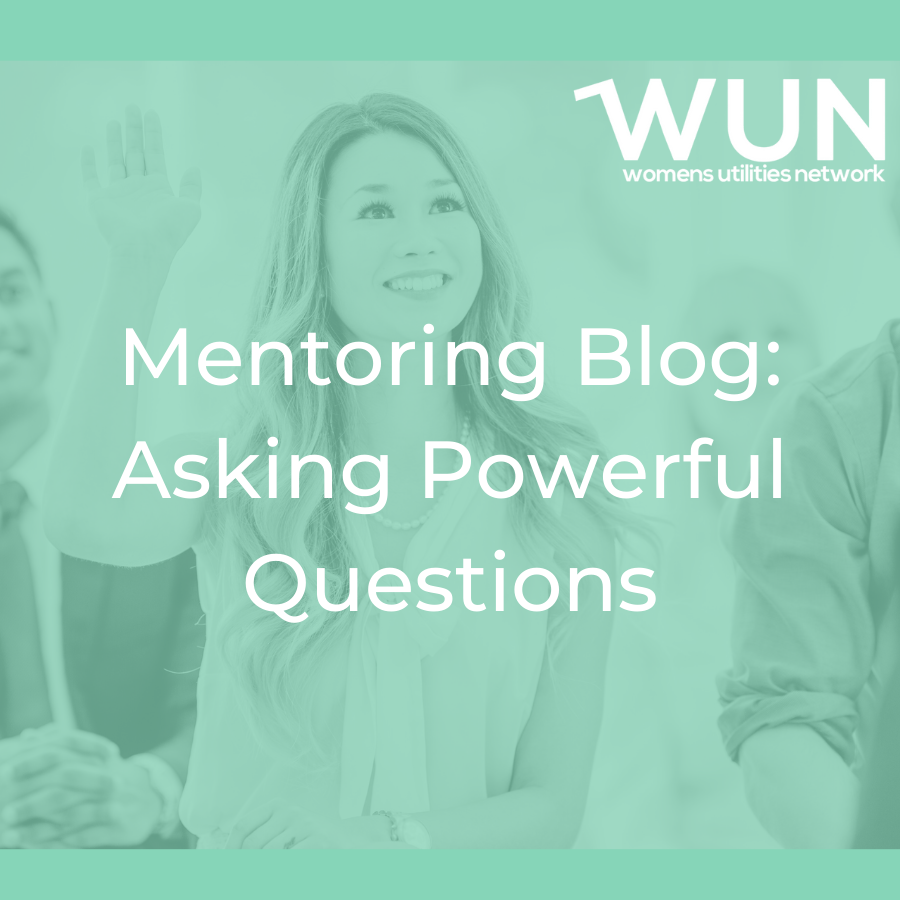Asking Powerful Questions

17th January every year provides an opportunity to celebrate International Mentoring Day. The day is dedicated to recognising and promoting the invaluable guidance, support, and empowerment that mentors provide, and the positive changes they encourage in individuals and communities. We wanted to mark the day by considering what makes a great mentor.
Our starting point was to reflect on the wealth of skills, experience, knowledge and contacts that the mentor has, enabling them to support and guide the mentee. However, just as important is the mentor’s ability to ask their mentee powerful questions, which encourage the mentee to open up and move forward.
There is no one-size-fits-all when identifying what is a powerful question, it can depend on the mentee’s personality or even the mood they are in that particular day. However, there are different categories of powerful questions which a mentor may like to try.
Setting the objective of today’s mentoring session – this is an opening question which may enable the mentee to provide a targeted response. For example – “What specifically would you like from me today?” or “How would you like to spend today’s session?”
A powerful question is more than likely an open question, as open questions invite the mentee to think-out loud, allowing them to reflect on what is important to them.
Some mentees may need very little in the way of a question to encourage them to open up. For example a simple “How are you?” or “How have things been since last time we met?” may elicit a detailed response. The mentor may just need to sit back and let the mentee talk – or if the mentor feels that the mentee is rambling, they may need to bring the mentee back to their objectives.
Mentees who are more reserved or nervous or who are just having a bad day, may respond to “How are you?” with “Fine” or a similarly short answer. For these mentees, the mentor will need to draw the mentee out. Examples of questions the mentor could use include “What have you enjoyed doing recently?” or “What has challenged you recently?”. The mentor should look out for any uncomfortableness from the mentee, ensuring that the mentee understands that what is said in the mentoring session is confidential and there is no right or wrong answers to the mentor’s questions.
The mentor should use active listening, ie. ask questions which double-check the mentor’s understanding of what the mentee has said. Firstly this demonstrates to the mentee that the mentor is listening and taking on board the mentee’s views and comments – this validates and empowers the mentee’s thoughts. Secondly this encourages the mentee to continue to develop and communicate their thoughts, building their confidence.
The mentor can also use challenging questions to push the mentee forward. For example – “how would that make you feel?” or “why would that not work?”. This tests the mentee’s thought processes and challenges their assumptions about their own ability or others’ views, knocking down the barriers to their progression and development.
Although we are looking at powerful questions – silence can be just as powerful. Sometimes, it can take the mentee a period of time to marshall their thoughts into coherent sentences. The mentor should give the mentee the space they need, by being silent – and not filling the void with their thoughts.
Finally, the mentor can ask a powerful question to encourage the mentee to take action and make them accountable. For example – “what action are you committing to before our next session?”
If you feel that you could be ready to ask powerful questions or to have powerful questions asked of you to help you reach your full potential, then why not take a look at our mentoring prograame.